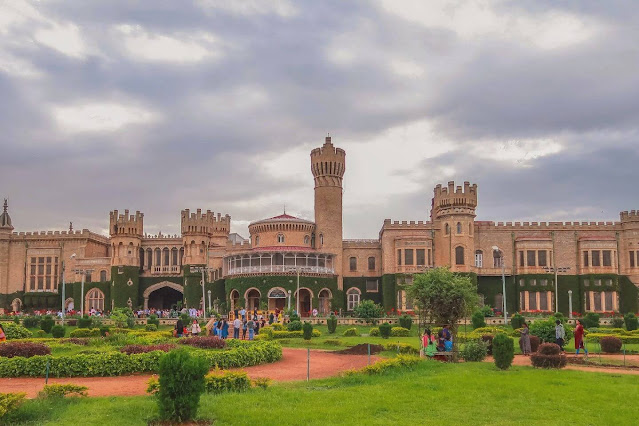Basic Information Of Abu Dhabi Temple
Introduction to Abu Dhabi
Temple (Sheikh Zayed Grand Mosque)
Abu Dhabi, the capital city of the United Arab Emirates (UAE), is home to one of the most magnificent architectural marvels in the world, the Sheikh Zayed Grand Mosque, often referred to as the Abu Dhabi Temple. This iconic landmark stands as a testament to the grandeur of Islamic architecture and serves as a symbol of religious devotion and cultural pride for the UAE and the Muslim world at large.
Historical Background
The idea for the construction
of the Sheikh Zayed Grand Mosque originated from the late President of the UAE,
Sheikh Zayed bin Sultan Al Nahyan, who envisioned a mosque that would not only
serve as a place of worship but also as a cultural and educational center
promoting understanding and tolerance. Construction of the mosque began in 1996
and was completed in 2007, spanning over a decade of meticulous planning and
craftsmanship.
Location and Significance
Situated majestically in the northeastern part of Abu Dhabi, the Sheikh Zayed Grand Mosque occupies a prominent place in the city's skyline. It holds immense significance not only as a religious sanctuary for Muslims but also as a symbol of unity and diversity in the UAE. The mosque's strategic location near the Sheikh Zayed Bridge and the Abu Dhabi International Airport makes it easily accessible to visitors from around the world.
Architectural Marvel
The architectural splendor
of the Sheikh Zayed Grand Mosque is nothing short of breathtaking. Blending
elements of traditional Islamic design with modern influences, the mosque's
structure is a harmonious fusion of beauty and functionality. Intricate marble
mosaics, ornate carvings, and shimmering glass work adorn every corner,
creating a visual feast for the eyes.
The mosque's main prayer hall, adorned with seven grand chandeliers and featuring the world's largest hand-knotted carpet, is a masterpiece of craftsmanship and engineering. The intricate floral motifs and geometric patterns that adorn the walls and ceilings pay homage to Islamic art and culture, while the towering minarets and domes add to the mosque's majestic presence.
Visiting the Abu Dhabi
Temple
For new travelers planning a
visit to the Sheikh Zayed Grand Mosque, there are several essential
considerations to keep in mind:
Visiting Hours: The mosque is open to
visitors daily, except during Friday mornings, which are reserved for worship.
It's advisable to check the official website or contact the mosque for the
latest visiting hours and any closures due to special events or holidays.
Dress Code: Modest attire is required
for both men and women when visiting the mosque. This means covering the arms
and legs, and for women, wearing a headscarf. However, if visitors do not have
appropriate attire, the mosque provides traditional garments at the entrance
for temporary use.
Guided Tours: To fully appreciate the
beauty and significance of the mosque, visitors can opt for guided tours led by
knowledgeable guides who provide insights into the mosque's history,
architecture, and cultural significance. These tours are available in multiple
languages and offer a deeper understanding of the spiritual and artistic
dimensions of the mosque.
Photography: Photography is permitted in
most areas of the mosque, allowing visitors to capture the awe-inspiring beauty
of their surroundings. However, it's essential to be respectful of worshippers
and follow any guidelines provided by the staff regarding photography
restrictions in certain areas.
Entry Fee: There is no entry fee to
visit the Sheikh Zayed Grand Mosque. It is open to all visitors, regardless of
their religion or background, as a gesture of hospitality and cultural
exchange.
Parking and Accessibility: The mosque offers ample
parking facilities for visitors, as well as accessibility options for
individuals with disabilities. Public transportation, taxis, and tour buses
also provide convenient access to the mosque for those without private
transportation.
Etiquette and Respect: While exploring the mosque,
visitors are expected to maintain a respectful demeanor, refraining from loud
conversations or disruptive behavior. Removing shoes before entering certain
areas of the mosque is customary, as is avoiding the use of mobile phones or
electronic devices in prayer halls.
Conclusion
A visit to the Abu Dhabi
Temple, also known as the Sheikh Zayed Grand Mosque, is a transformative
experience that leaves a lasting impression on travelers from around the world.
As one of the most significant architectural and cultural landmarks in the UAE,
the mosque serves as a beacon of spiritual enlightenment and cultural exchange,
inviting visitors to immerse themselves in the rich tapestry of Islamic art,
history, and tradition.
From its awe-inspiring
architecture to its profound spiritual significance, the Sheikh Zayed Grand
Mosque stands as a testament to the vision and legacy of Sheikh Zayed bin
Sultan Al Nahyan, embodying the values of peace, tolerance, and understanding
that lie at the heart of the UAE's cultural identity. For new travelers
embarking on a journey to Abu Dhabi, a visit to this majestic temple of worship
is an essential pilgrimage that promises to inspire, educate, and uplift the
soul.




Comments
Post a Comment